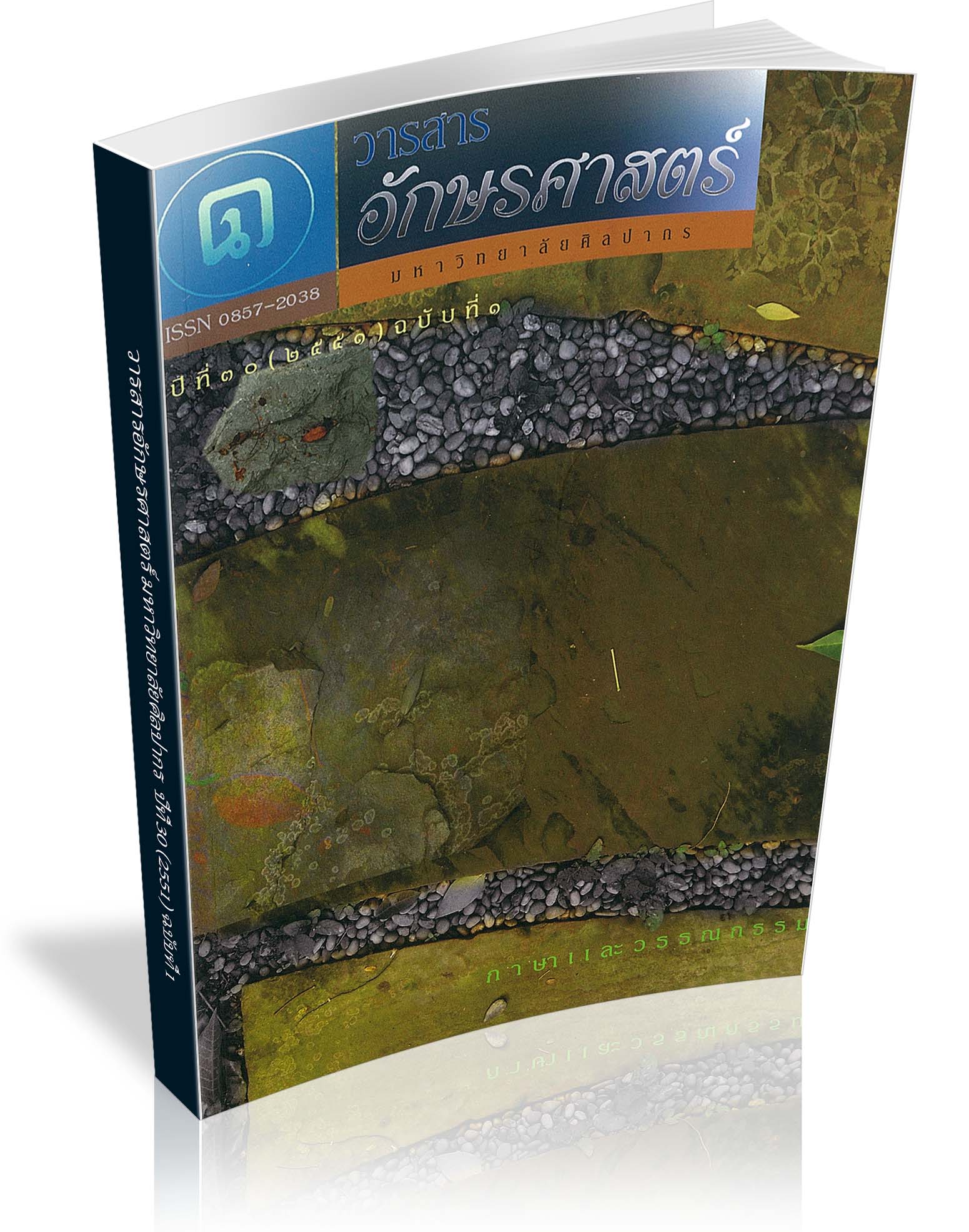Shame and Junzi : The Concept of Shame in Confucius's Philosophy
Keywords:
Confucius, shame, junzi, ethics, moral emotionAbstract
This paper examines the concept of shame or "chi” in Confucius's philosophy. Confucius uses this term in a broad sense, covering a wide range of meaning from social shame to moral shame. These different senses of shame can be stimulated by both external observation and internal moral condition, and their dissimilarities hinge on the moral cultivation. Junzi, a moral and cultivated person, feels shame and expresses it in various contexts. Moreover, shame is a moral emotion that plays a significant role in ethics at many levels, namely at personal, communal and political.
Downloads
References
สุวรรณา สถาอานันท์. กระแสธารปรัชญาจีน : ข้อโต้แย้งเรื่องธรรมชาติ อำนาจและจารีต. กรุงเทพมหานคร : สำนักพิมพ์แห่งจุฬาลงกรณ์มหาวิทยาลัย, ๒๕๓๙.
สุวรรณา สถาอานันท์, ผู้แปล. หลุนอี่ว์ : ขงจื่อสนทนา. กรุงเทพมหานคร : สำนักพิมพ์แห่งจุฬาลงกรณ์มหาวิทยาลัย, ๒๕๕๑.
Ames, Roger T. and Henry Jr. Rosemont. The Analects of Confucius : A Philosophical Translation. New York : Ballantine Books, 1998.
Calhoun, Cheshire. “An Apology for Moral Shame.” The Journal of Political Philosophy 12 (2006) : 127-146.
Deigh, John. “Shame and Self-Esteem.” Ethics 93 (January 1983) : 225-245.
Fingarette, Herbert. Confucius : The Secular as Sacred. New York : Harper Torchbooks, 1972.
Downloads
Published
How to Cite
Issue
Section
License
ผู้เขียนบทความต้องยินยอมในข้อกำหนดต่าง ๆ ของวารสารก่อนส่งบทความตีพิมพ์



